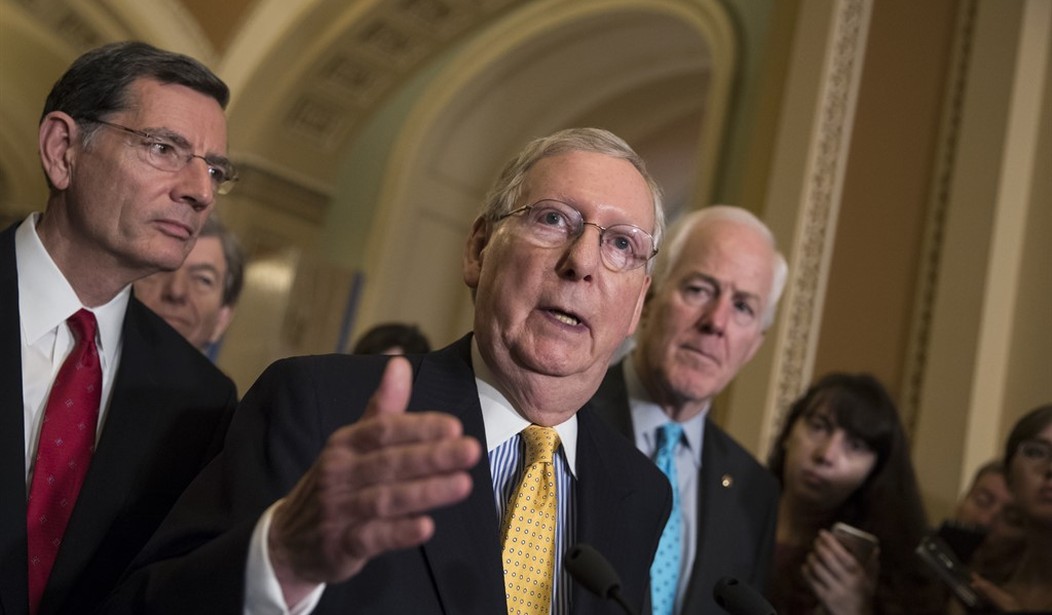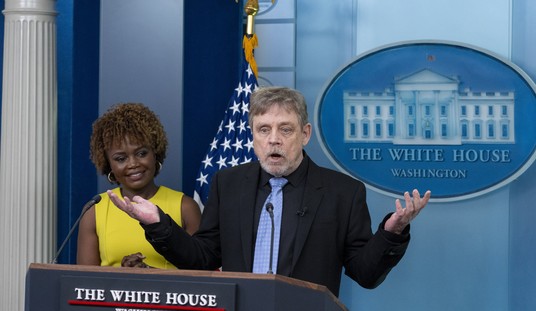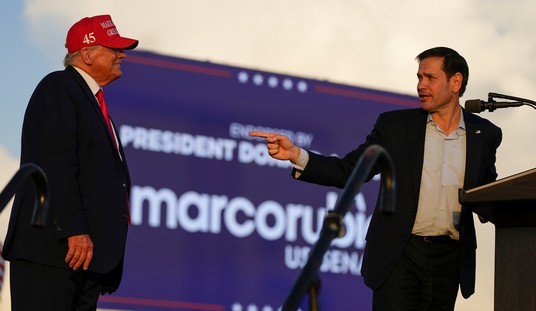Reports this week give some reason for optimism that Senate Republicans have begun getting closer to a deal on an ObamaCare repeal package that can pass under reconciliation. Just how much closer is still up for debate. Roll Call offers a more optimistic view of the situation this morning, with Andrew Siddons reporting that more moderate members have coalesced a little more around a new plan. However, even that is getting tested by the details:
Moderate Republicans on Thursday said they were getting closer to supporting an emerging Senate health package but are continuing to press for a slower phaseout of the Medicaid expansion than the House-passed bill set out.
The Medicaid expansion question seems to remain the biggest unresolved issue as Republicans try to finalize a bill they can vote on before the end of June. To meet their timeline, they would have to send a bill to the Congressional Budget Office for a cost estimate by early next week, according to a Republican aide.
Majority Leader Mitch McConnell has proposed phasing out higher federal payments for people who sign up for Medicaid under the health law’s expansion in three years. Ohio Republican Rob Portman and others such as Nevada’s Dean Heller are pushing for a seven-year phaseout ending in 2027. Senators also are debating how much to reduce federal funding for Medicaid as compared to current law.
The pace of the Medicaid-expansion rollback is hardly a minor issue. That accounts for all of the net cost savings that qualified the House version of the AHCA for reconciliation in the Senate (presumably). The CBO’s latest score for the AHCA showed that the rollback under the 2020 deadline would save $665 billion over the next decade, with the overall bill coming in with a cost savings of just $119 billion. Rolling back the end date will have a big impact on whether the overall package results in enough savings to qualify under reconciliation, and there’s not a lot of room for error.
In order to make that work, the Senate may have to keep some tax components in place, which won’t sit well with conservatives. And those aren’t the only components that may remain, according to a less optimistic look from the Washington Post:
In their effort to revamp the nation’s health-care system, Senate Republicans are considering preserving or more gradually eliminating key elements of the Affordable Care Act that the House voted to discard, creating an uncomfortable political situation for the party after years of promises to fully repeal the law.
Senate GOP leadership told rank-and-file Republican senators during private talks this week that they favor keeping guaranteed protections for people with preexisting medical conditions — a departure from the House approach of allowing states to opt out of a regulation ensuring such individuals are not charged more for coverage.
Senate Republicans have also been mulling options to more slowly roll back the expansion of Medicaid that most states accepted under Obamacare, and they are also openly talking about keeping many of the taxes the law imposed. The goal is to find a sweet spot of at least 50 votes in a sharply divided group of 52 Republican senators, many of whom are from states where coverage levels increased under President Barack Obama’s signature health-care law.
As Sean Sullivan and Kelsey Snell note, that’s not going to pass muster with the conservo-libertarian trio of Rand Paul, Ted Cruz, and Mike Lee. That only leaves 49 potential votes for Mitch McConnell, one shy of being able to corral Mike Pence into a tie-breaker. If that’s the case, though, could the concessions in the Senate bill woo Democratic Sen. Joe Manchin to cast an affirmative vote? A month ago, he pledged that he could deliver eight to ten Democrats on an ObamaCare “fix” rather than a repeal. Would this Senate version qualify enough for Manchin’s moderate caucus? Almost certainly not, but perhaps Manchin could deliver himself, and that might be enough. It seems like a long shot that Manchin, who’s running for re-election in 2018, will want to add his name to a Medicaid-expansion rollback just as West Virginia voters decide whether to send him back to Washington.
There may be some reasons for optimism in the sense that the Senate has begun putting together an actual plan to debate, rather than just discuss the House version of the AHCA, which was dead on arrival. However, the same issues still exist, and it’s far from clear that McConnell can get to 50 in any combination of formulas.








Join the conversation as a VIP Member